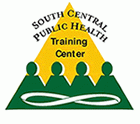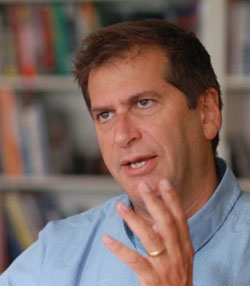
Civic Engagement
Course Description:
Current economic uncertainty continues to limit the public funds available to deal with critical public health issues. Challenges and problems, and the solutions to them, are increasingly becoming the responsibility of local and regional communities. And as community populations become increasingly more diverse in race, religion, and socio-economic status, new strategies and tools are needed to get people and organizations to agree on a plan and work together to achieve it. This course will discuss the new era in politics brought on by recent social and technological changes and the role of communities and individuals in reinventing how we govern.
Target Audience
Academic Faculty/Staff, Federal Government Employees, State Government Employees, Local Government Employees, Non-Government Employees and Students
Learning Objectives
- Describe the major political changes that occurred in the United States in the last century
- Discuss the current political climate in the United States
- Discuss the impact of social media on politics
- Define social capital and its relation to democracy
- Describe the Healthy Communities Movement
- List the characteristics of healthy communities
- Discuss the role of reinvention in civic engagement
Instructor:

Christopher T. Gates
Executive Director
PACE – Philanthropy for Active Civic Engagement
Chris Gates is the first Executive Director of PACE, Philanthropy for Active Civic Engagement. PACE is a new organization founded to bring more attention and focus to the issues of civic engagement and to encourage more members of the philanthropic community to make civic engagement a part of their funding priorities. In this role Gates speaks extensively around the country and around the world on the broad topics of civic engagement, including civic education, leadership training, community problem solving, political reform and democratic renewal.
He previously served for eleven years as President of the National Civic League, a national, non-profit organization with offices in Denver and Washington, D.C. The National Civic League is a 112-year-old advocacy organization that was founded by Teddy Roosevelt and focuses on revitalizing America’s democracy at the local level. Before serving as President, Gates served for eight years as Vice President of NCL.
Prior to his work with the National Civic League, Gates ran a consulting practice that worked with both communities and corporations to help them deal with issues of change. These strategic planning efforts helped his clients better align their practice and structure with their goals and aspirations. Prior to that he served as the Communications Director of the Piton Foundation and as a speechwriter and policy aide to then Colorado Governor Richard Lamm.
Available Credit
- 2.00 Participation/CETulane Professional and Continuing Education (PaCE) awards 2.00 hour(s) of credit for completing Civic Engagement
Price
Required Hardware/software
System Settings
This course is designed to work most effectively if your computer and internet connection meet certain minimal requirements. This course can be accessed using a Windows 10 PC or a Mac with High Sierra1, Mojave, or Catalina. Pop-up blockers should be disabled when viewing the course. Internet Explorer 11 (for Windows 10), or the current version of Google Chrome, Mozilla Firefox, or Apple Safari (for Windows 10 and or Mac) is required. Many of our courses require Java and JavaScript enabled.
Links to External Websites
Links to websites outside this course will open in a new window or tab. Some browsers may minimize the course window. If this occurs, maximize the course window to return to the course.
Adobe Acrobat Reader (for desktops and laptops)
Adobe Acrobat Reader is required to access some documents in this course. If you need to download a free copy of Acrobat Reader, click here.
Internet Connection Speed
A minimum download speed of 1.5 Mbps is recommended for an optimal experience, which is commonly the speed associated with a basic DSL or a cellular/satellite connection. A faster connection, such as cable or fiber service, with further enhance your online experience. A Wi-Fi connection is generally acceptable, but it is dependent upon one of the two services mentioned above. You can check your internet connection speed at http://www.speedtest.net/.

 Facebook
Facebook X
X LinkedIn
LinkedIn Forward
Forward